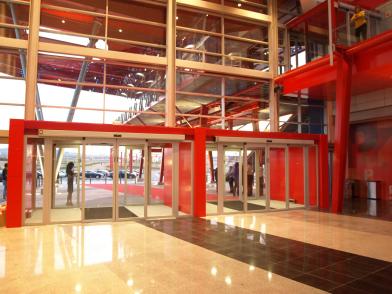

Door Sector Hit by Rising Raw Material & Energy Prices
Increasing raw materials and energy prices continue to increase production costs for the automatic door sector. In response, companies are having to raise their prices to sustain profitability and avoid going into the red, AEPA explains.
The industrial sector has been suffering a general shortage of raw materials since the beginning of the pandemic in 2020. “That’s meant, and continues to mean, cost increases that seem never-ending,” says AEPA, the Manual & Automatic Doors Business Association.
This already difficult situation is compounded by “rising energy prices, further aggravated since the outbreak of the war in Ukraine, which in turn is increasing transport costs, by sea and air but, above all, by land.” Shipping hasn’t stabilised yet because the existing container shortage has been compounded by the upsurge in Covid cases in places like China.
According to AEPA, all this has led to increased production costs, which means “that companies are continually updating their prices to maintain profitability and avoid going into the red.” So, “while until 2020 prices went up annually, and often every two years, during 2021 we had to increase them several times, and it looks like things are going the same way in 2022.”
The association explains that “in general, both private consumption and the industry itself continue to invest in improving homes and facilities. There was frenetic market growth throughout 2021, which kept up speed in early 2022, but that’s beginning to slow now due to rising prices.”
PREE 5000 Programme
AEPA is convinced that “to boost our sector, we must take advantage of the opportunities with the PREE 5000 Programme (for Energy Upgrading of Buildings in Demographically-Challenged Municipalities) under the Next Generation EU funding that Spain has earmarked for energy-efficiency refitting.” They say that, “doors can improve energy efficiency and ratings. So, they’re eligible for grants under that programme, as long as it’s justified and complies with the technical requirements.”
“Companies must,” they point out, “work on this in partnership with the associations to properly convince the government about the energy efficiency improvements with specific door types. We’re already making good progress in demonstrating that, and we hope to be able to lead this initiative within FIMPA (National Federation of Manufacturers, Installers and Maintainers of Doors & Automation Systems) to present it to the Ministry of Industry, regions and the IDAE (Institute for the Diversification & Saving of Energy).” They emphasise that “PREE 5000 responds to the urgent need to combat the continuing depopulation problem by renewing building equipment in nearly 7000 municipalities with a population under 5000 . However, energy refitting subsidies can be used in any type of building, both in towns and cities.”





